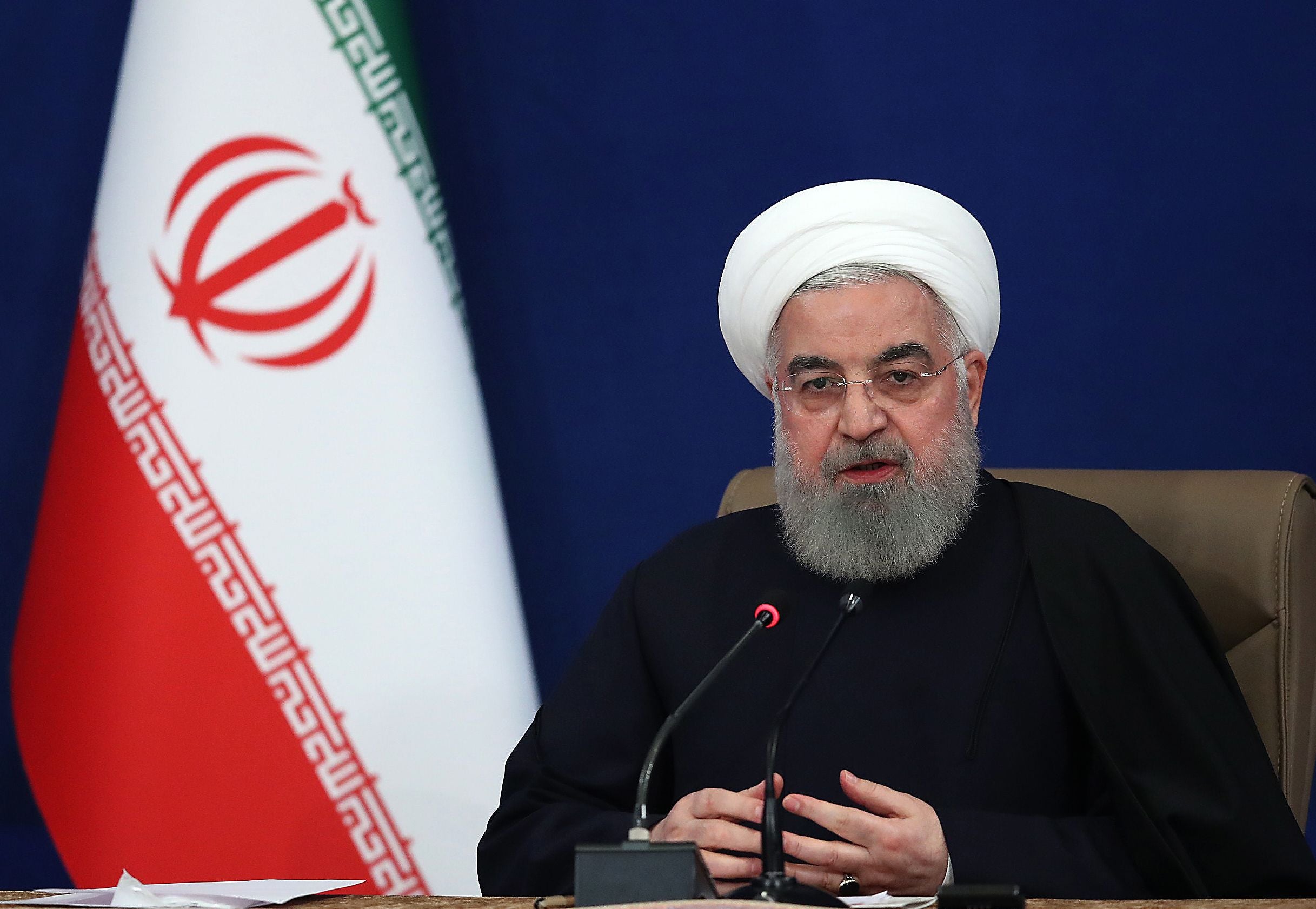Iran’s Rouhani says ‘madman’ Trump will suffer similar grim fate as hanged Saddam Hussein
‘One imposed a military war on us, while the other imposed an economic war’

Your support helps us to tell the story
From reproductive rights to climate change to Big Tech, The Independent is on the ground when the story is developing. Whether it's investigating the financials of Elon Musk's pro-Trump PAC or producing our latest documentary, 'The A Word', which shines a light on the American women fighting for reproductive rights, we know how important it is to parse out the facts from the messaging.
At such a critical moment in US history, we need reporters on the ground. Your donation allows us to keep sending journalists to speak to both sides of the story.
The Independent is trusted by Americans across the entire political spectrum. And unlike many other quality news outlets, we choose not to lock Americans out of our reporting and analysis with paywalls. We believe quality journalism should be available to everyone, paid for by those who can afford it.
Your support makes all the difference.Iran's president on Wednesday described Donald Trump as a “madman”, likened him to former Iraqi dictator Saddam Hussein, and predicted the American president would suffer a fate similar to the late Baathist leader, who was hanged in a Baghdad prison 14 years ago.
“The day that madman was hanged was the day people celebrated the final victory,” President Hassan Rouhani said during a cabinet meeting. “Trump’s fate won’t be much better than Saddam’s."
Rouhani's provocative remarks come four weeks before Mr Trump is to leave office and potentially face civil and criminal legal actions by federal and state authorities as well as private complainants for actions during and before his one-term presidency.
The Trump administration withdrew from a 2015 nuclear deal involving Iran and other world powers and introduced a policy of “maximum pressure” targeting Iran’s economy.
Tightened US economic sanctions, including those targeting non-American companies considering investing or doing business in the country, have badly damaged Iran’s economy, which has been further strained by the coronavirus pandemic and endemic corruption and mismanagement.
Mr Rouhani called both Hussein, who launched a devastating eight-year war against Iran in the 1980s, and Mr Trump mentally unstable aggressors. Hundreds of thousands of lives were lost in the war, with Iran suffering the greater losses.
“One madman in our region was Saddam, who imposed a war on our nation, and the other madman was Trump, who imposed another war on our people,” he said in comments that were broadcast on state television.
“One imposed a military war on us, while the other imposed an economic war.”
Hussein, who was captured by US forces after the 2003 invasion and occupation of Iraq, was put to death by hanging in an early morning execution overseen by his longtime political enemies.
Since the defeat, the Trump administration and its allies have stepped up pressure on Iran with sanctions and military maneuvers, egged on by a coterie of foreign-influenced Washington insiders eager to topple the four-decade regime in Tehran.
Intelligence sources have been cited by American news outlets as saying that Israel, with Washington’s blessing, was behind the assassination of nuclear scientist Mohsen Fakhrizadeh, seen as the father of Iran’s dormant clandestine nuclear weapons programme.
Mr Biden has signalled that he’d like to return to the Iran nuclear deal, a move that Mr Rouhani has welcomed as a way to ease economic pressure.


Join our commenting forum
Join thought-provoking conversations, follow other Independent readers and see their replies
Comments